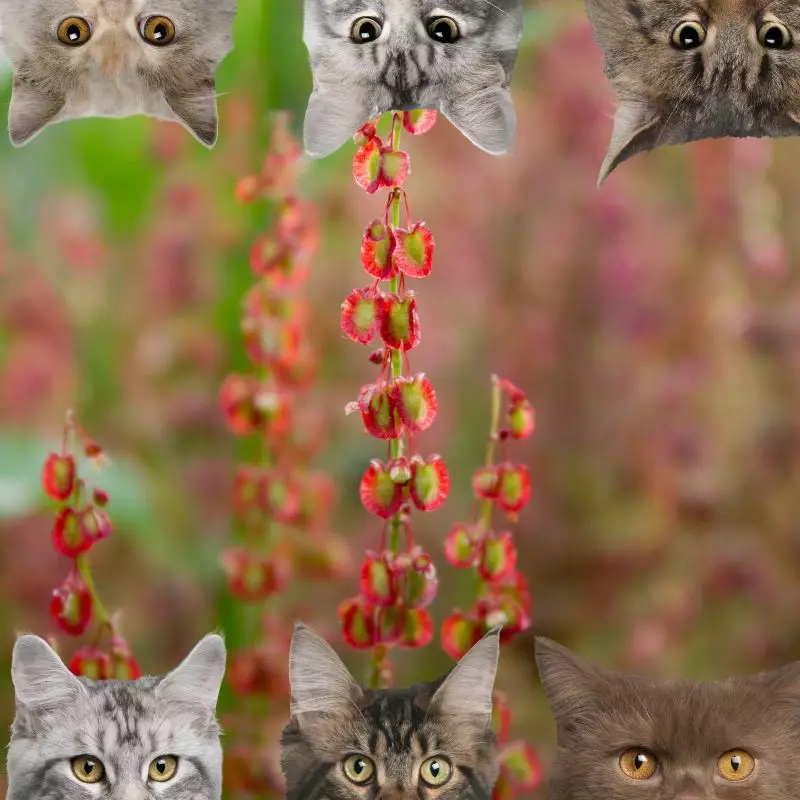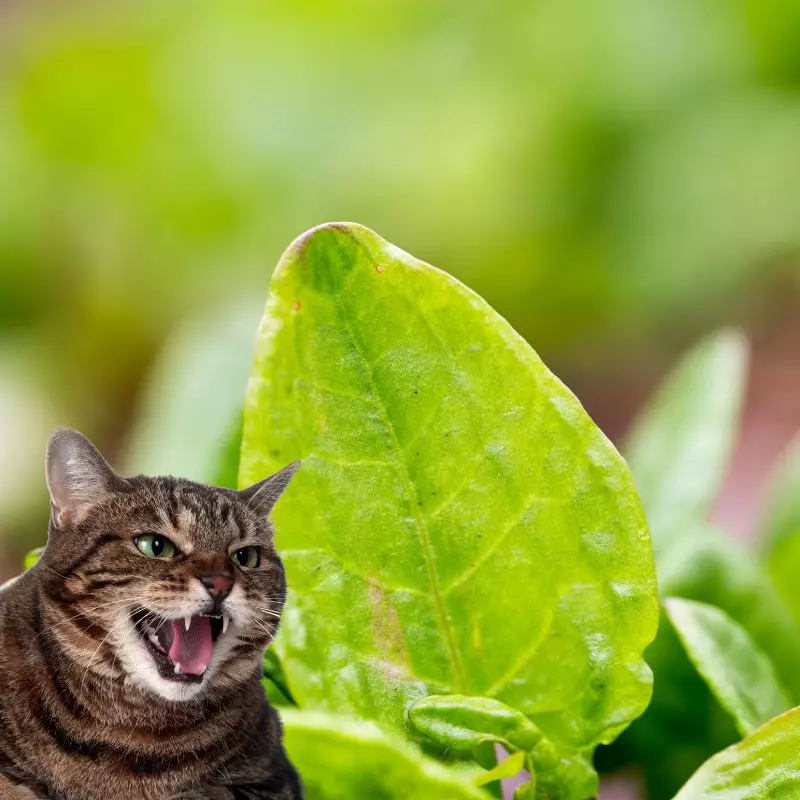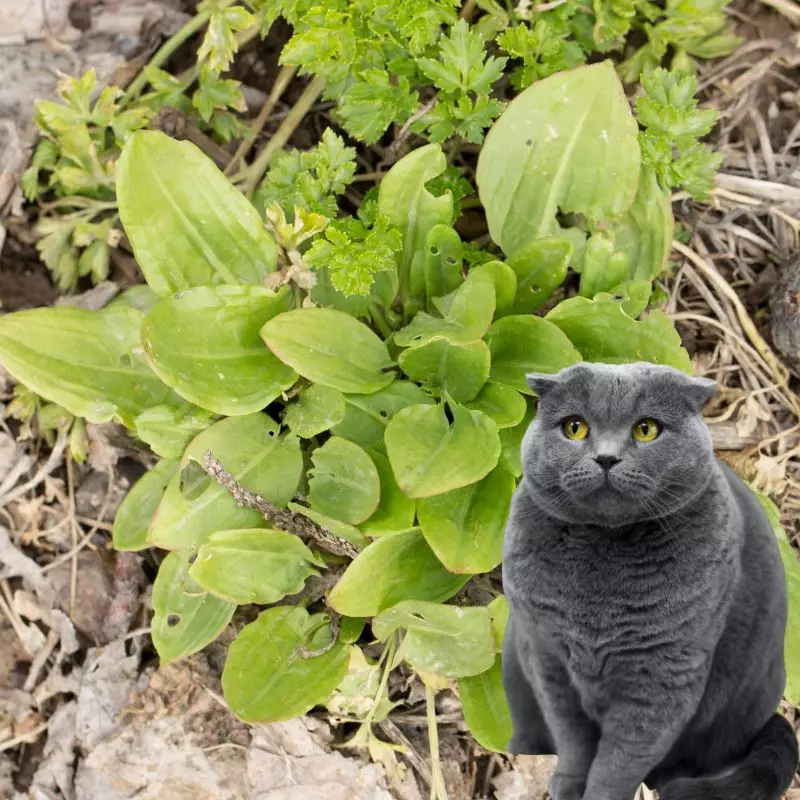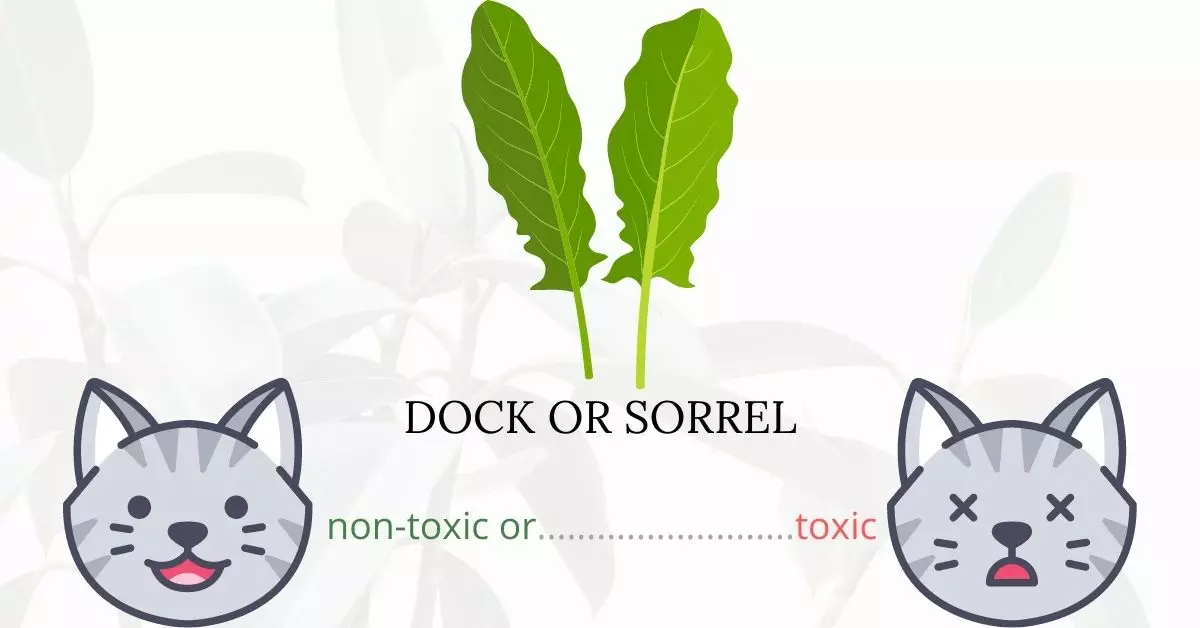Dock, also referred to as sorrel or bitter dock, is indeed toxic to cats. This perennial plant contains calcium oxalates, harmful substances which can damage a kidneys of felines and lead to the formation of crystals in their urinary tract. While many cases of dock ingestion don’t result in fatalities, it is critical to note that severe reactions can be lethal in a very short timeframe, sometimes in as little as 10 hours. Though dock leaves are often eaten by humans in various dishes, they are unsafe for our feline friends, leading to symptoms such as oral irritation, excessive salivation, and vomiting.
This article has been crafted in close collaboration with a team of experienced DVMs (doctors of veterinary medicine). Through their invaluable insights, we can offer precise and current details on the potential hazards linked with various plants, particularly Dock in this context. Furthermore, for thoroughness and accuracy, we’ve consulted reputable sources such as the ASPCA and PetMD for each plant under discussion.
Clinical Signs of Dock or Sorrel Poisoning in Cats

Dock or sorrel exposure can lead to a range of clinical symptoms in cats, depending on how they interact with the plant. Here’s a breakdown of the signs and their causes:
- Excessive drooling: This is often the first sign and occurs due to irritation of the mouth and throat caused by calcium oxalates present in the plant. Salivating helps the cat try to rid itself of the irritants.
- Skin irritation: Direct contact with dock leaf juices can result in skin inflammation. The juices can be caustic and cause immediate irritation to the sensitive skin of cats.
- Vomiting: After ingestion, the stomach reacts to the plant’s toxic compounds, leading to nausea and eventual vomiting as the body’s way of eliminating the harmful substance.
- Irritation of the mouth: The calcium oxalates in the plant cause a burning and irritating sensation in the mouth, leading to discomfort and potential inflammation.
- Depression: As the toxins affect the cat’s system, it can lead to behavioral changes such as listlessness and a lack of interest in surroundings.
- Dyspnea or difficulty in breathing: The toxins can impact the respiratory system, causing inflammation and leading to labored or difficult breathing.
- Lethargy: A general feeling of fatigue and weakness is common, as the cat’s body tries to cope with and combat the toxins.
- Weak pulse: The cardiovascular system can also be affected, leading to a weakened pulse as the body’s response to the plant’s toxic compounds.
- Loss of appetite: Due to nausea and overall malaise, cats may show a decreased interest in food after dock ingestion.
- Loss of muscle control: The plant’s toxins can impair the nervous system, causing difficulty in coordination and movement.
- Tremors: As a result of the nervous system’s impairment, cats might exhibit uncontrollable shakes or tremors.
- Coma: In severe cases and without timely intervention, the overwhelming effects of the toxins can result in the cat falling into a coma.
If your cat displays any of these signs after exposure to dock or sorrel, immediate veterinary attention is crucial.
First Aid and Treatment of Dock or Sorrel Poisoning in Cats

A calcium-rich fluid, such as dilute calcium lactate or dilute calcium hydroxide can aid the cat’s body combat the effects of oxalates. Although the cat may be coaxed to drink the solution, the liquid will most likely have to be administered intravenously.
All of your cat’s symptoms will be discussed with the veterinarian. Intravenous fluid therapy, activated charcoal administration, and gastric lavage may be used to treat dock or sorrel plant toxicity. If your cat’s skin is irritated, the vet may prescribe a topical medicine. Other drugs may be prescribed by the veterinarian if he believes they are important for your cat’s recovery.
Recovery from Dock or Sorrel Poisoning in Cats

Severe cases of dock plant poisoning are rare because a large quantity of the plant must be ingested to reach extreme toxicity. The greatest prognosis comes from prompt treatment, so do not be complacent and bring your cat to the vet if you think that he or she has been poisoned.
Prevention of Dock or Sorrel Poisoning in Cats
Keeping the dock or sorrel plants out of your garden may be the safest alternative. Avoid leaving your salads unattended to prevent your cats from accidentally nibbling on them. Keeping your cats indoors can help protect them from these plants in other people’s vegetable and herb gardens.
If you love plants but have cats at home, check out these lists:





